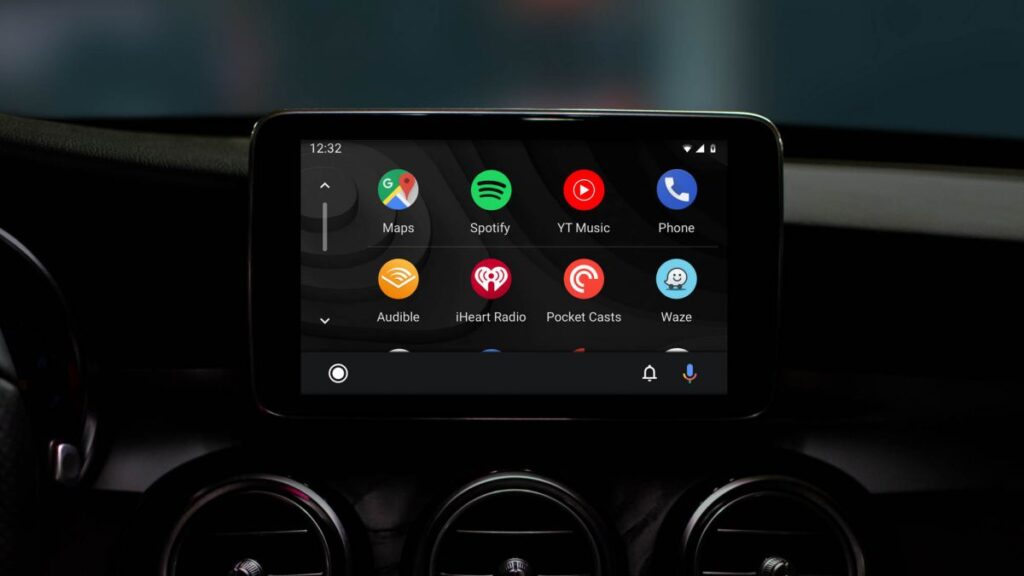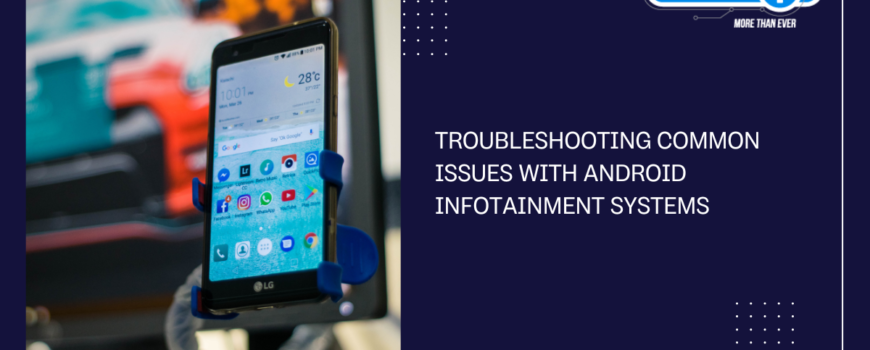Android infotainment systems are so common in modern vehicles that they offer drivers and passengers a range of features, from navigation to music streaming. However, like any technology, these systems can sometimes run into problems. Understanding how to troubleshoot common issues with Android infotainment systems can save you time and energy on the road.
1. System Freezing or Lagging
One of the most common issues with Infotainment Android Systems is freezing or lagging. You might notice that the screen becomes unresponsive, apps take too long to load, or the system slows down significantly. This issue often arises due to too many apps running in the background, outdated software, or insufficient memory.
Solution: Start by closing unused apps running in the background. If the problem persists, try restarting the Android infotainment system. Check for software updates, as manufacturers frequently release patches to fix bugs. If the system continues to lag, a factory reset might be necessary. This will clear out any unnecessary files or corrupted data in your Android infotainment system, returning the system to its original state.
2. Connectivity Issues
Another frequent problem with Infotainment Android Systems is difficulty connecting to Bluetooth, Wi-Fi, or mobile networks. Connectivity issues can be due to outdated firmware, interference from other devices, or incorrect settings.
Solution: Ensure your system’s firmware is up-to-date, as updates often improve connectivity. If you’re having trouble connecting to Bluetooth, try unpairing and re-pairing the device. Check the network settings for Wi-Fi or mobile network issues and ensure they’re correctly configured. Restarting the system or your phone might help resolve these infotainment Android system problems.
3. Audio Distortion or No Sound
Nothing is more frustrating than dealing with poor sound quality or no sound from your Infotainment Android System. This is a common infotainment issue. Audio issues can stem from loose connections, incorrect audio settings, or hardware malfunctions.
Solution: First, check the audio settings to ensure the volume levels are correctly adjusted and the correct audio source is selected. Then, inspect the wiring and connections to the speakers and amplifier. If everything seems fine but the problem persists, the issue might be with the hardware itself, in which case it would be wise to contact your car’s service centre or the system’s manufacturer for further assistance.
4. GPS Navigation Issues
Many drivers rely on the GPS functionality of Infotainment Android Systems for navigation. If the GPS signal is weak or the system gives incorrect directions, it can lead to significant inconveniences. GPS issues may occur due to poor satellite reception, outdated maps, or incorrect system settings.
Solution: Ensure your system’s maps are updated to the latest version. Position your vehicle in an open area to get a clear signal from GPS satellites. If the problem continues, check the GPS antenna connection and settings. Recalibrating the GPS can also resolve the issue, improving visibility on the road.
5. App Crashes and Malfunctions
Infotainment Android Systems allow you to use various apps, but these apps can sometimes crash or fail to work correctly. App crashes are common infotainment issues, and they are typically due to software conflicts, outdated apps, or insufficient system resources.
Solution: Regularly update your apps and the infotainment Android system’s software to the latest versions. If a specific app is causing problems, try uninstalling and reinstalling it. Clearing the app’s cache can also resolve many issues. In some cases, adjusting the system’s settings to prioritize certain apps can prevent crashes.
6. Touchscreen Unresponsiveness
A touchscreen that responds incorrectly can make using your Infotainment Android System a frustrating experience. Software glitches, dirt or smudges on the screen, or a faulty touchscreen can cause this.
Solution: Clean the screen with a microfiber cloth to remove dirt or smudges. If the problem persists, try restarting the system or performing a soft reset. If the touchscreen remains unresponsive, a factory reset might be necessary. However, if it’s a hardware issue, the touchscreen may need to be replaced by a professional.
7. Power Issues
The Infotainment Android System may occasionally fail to turn on or shut down unexpectedly. Wiring problems, a blown fuse, or a malfunctioning power supply can cause power issues.
Solution: Check the system’s wiring to ensure everything is securely connected. Inspect the fuse box for any blown fuses and replace them if necessary. If the system still doesn’t power on, the problem might be with the power supply unit, which would require professional repair.

8. System Not Recognizing USB Devices
Sometimes, your Infotainment Android System doesn’t recognize your USB devices. This can happen due to incompatible file formats, a faulty USB port, or outdated firmware.
Solution: Ensure your USB device is formatted correctly and that the files are in a supported format. Try using a different USB port or cable to see if the problem is with the hardware. Updating the system’s firmware can also help resolve compatibility issues.
9. Slow Boot Times
If your Infotainment Android System takes too long to start up, it can delay your journey. Slow boot times are usually caused by too many apps loading at startup or insufficient system resources.
Solution: In the system settings, disable non-essential apps from automatically starting when the system boots up. Clearing out unnecessary files and data can also speed up boot times. Sometimes, a system reset may be required to resolve the issue.
10. Overheating of the System
Sometimes, your Infotainment Android System might overheat, causing it to shut down or perform poorly. Overheating can be due to prolonged usage, inadequate ventilation, or running too many resource-intensive apps simultaneously.
Solution: Ensure that the ventilation around the system is not obstructed. If possible, park your vehicle in shaded areas to prevent excessive heat buildup, especially during hot weather. Reducing the number of apps running in the background can also help manage the system’s temperature. If the problem persists, consider using a cooling pad or fan specifically designed for car electronics. If overheating continues, consult a professional to check the system’s internal cooling mechanisms.
Final Thoughts
Car system troubleshooting becomes simple once you’re familiar with the common issues. With regular updates and proper maintenance, you can keep your car’s Android infotainment system running smoothly. Circuit-i offers cutting-edge car multimedia systems designed to enhance your driving experience. Prioritize your system’s care, and have an enjoyable driving experience every time you hit the road.

